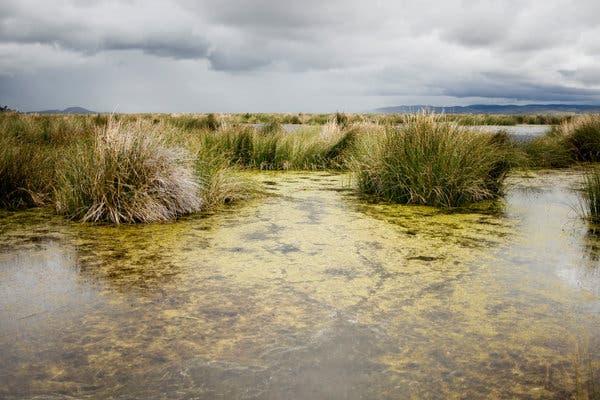Gene Transfer From Bacteria to Algae is How Plants Evolved to Survive on Land

Image Courtesy : New York Times.
About a half billion years ago, planet Earth was mostly bare, with no trees, no humans and no big animals. The only life forms that existed at that period of time were some bacteria and fungi.
When the plants took their roots on the land, they grew into forests, swamps and also shrubs. The plants flooded the planet with oxygen and made it possible for other life forms to exist on land as well, In other words, leave water and come on to land. Plants changed the surface of Earth forever.
Today, plants amount to 500 billion tonnes of carbon, which is more than carbon in all other living things combined. It is the highest biomass of the Earth.
But the question is how did plants evolve to conquer the land? The evolutionary mystery has seen some light in a recent work published in Cell. The research showed that plants evolved out of algae. Based upon the analysis of algal genome, the research discovered that genes found in these genomes were crucial for life’s emergence from water. Another important aspect that the research points out is that among the algal genes were some acquired from soil bacteria and these genes were likely transferred into an ancestor shared by the algae and land plants.
Two algae, namely, Spirogloea muscicola and Mesotaenium endlicherianum were sequenced and their genomes analysed. The researchers found 902 genes in 22 gene families that the two algae and land plants shared. These genes were absent in other algae. These genes are the trace of evolution just before the two groups branched away from each other on the plant family tree some 580 million years ago.
The research also found that these two were among the shared gene families code for genes that help plants cope with desiccation and other stresses. Those genes are also in soil bacteria and in no other organisms. The researchers concluded that these genes got transferred into the common ancestor of the algae and land plants, because the bacteria evolved much earlier than the algae and the plants.
“It is a milestone for the field of early plant evolution and the link to soil bacteria is an added bonus” says Jan de Vries, an evolutionary plant biologist at the Georg August University of Göttingen, Germany.
Pamela Soltis, another plant evolutionary biologist at Florida University, a said “That horizontal gene transfer may have contributed to the colonisation of land is pretty exciting. Although it’s well accepted that bacteria exchange genes, examples of gene transfer to more complex organisms are still controversial. If this case holds up, it demonstrates how important the process can be for evolution.”
The findings are important in several aspects. First, it adds to the growing fact that genetic manipulation happens in nature. Many such manipulations are important for the evolution of lives and eventually the climate. Second, bacterial gene transfer can take place between complex and advanced organisms as well.
The story started back in 2006 when Michael Milkonian, the lead scientist of the research, went on a plant collecting trip 50 kilometers away from University of Cologne, the place where he is working. Melkonian came across an unusual algae, which was only known from a 19th century French natural historian’s descriptions.
Now, Milkonian is teaming up with Gane Ka–Shu, a genomicist of University of Alberta, Canada, to decipher the genome sequencing of his unusual algae along with a close relative of it.
Get the latest reports & analysis with people's perspective on Protests, movements & deep analytical videos, discussions of the current affairs in your Telegram app. Subscribe to NewsClick's Telegram channel & get Real-Time updates on stories, as they get published on our website.














